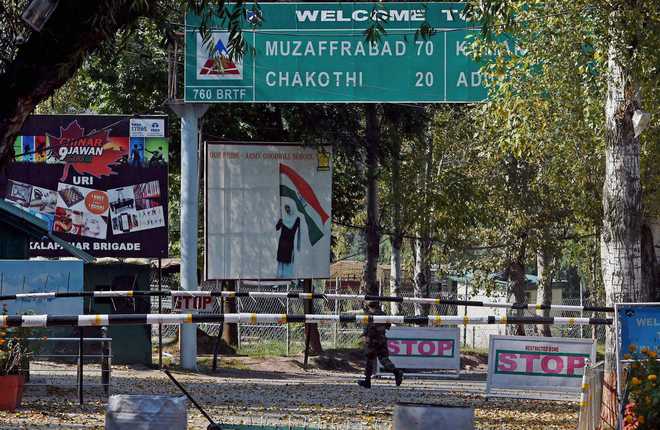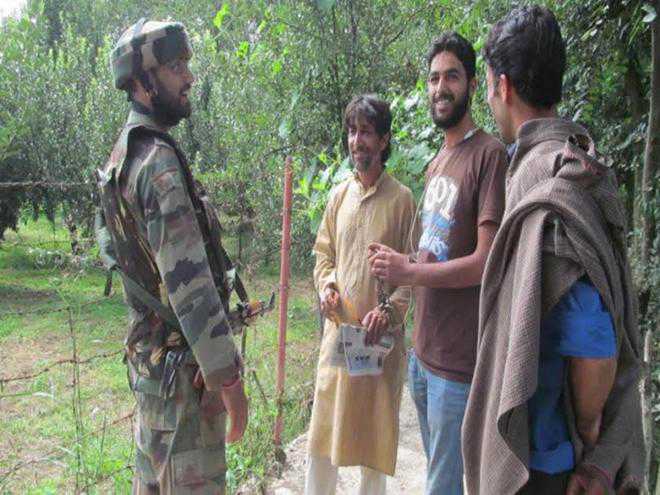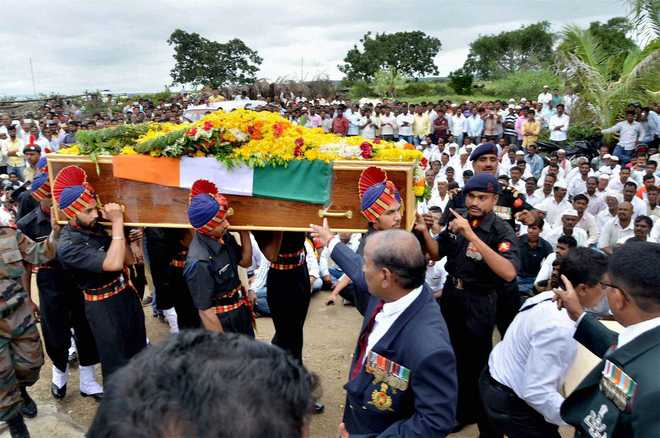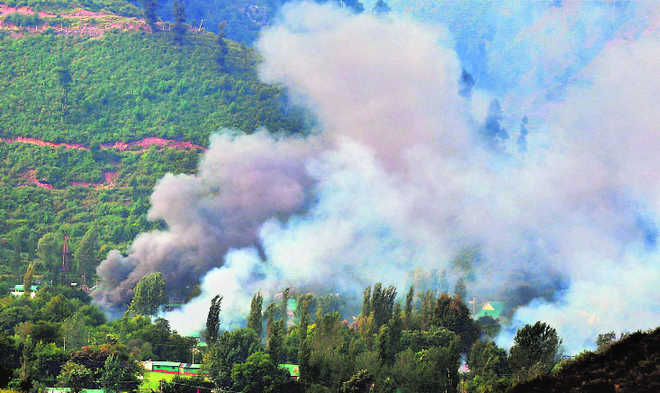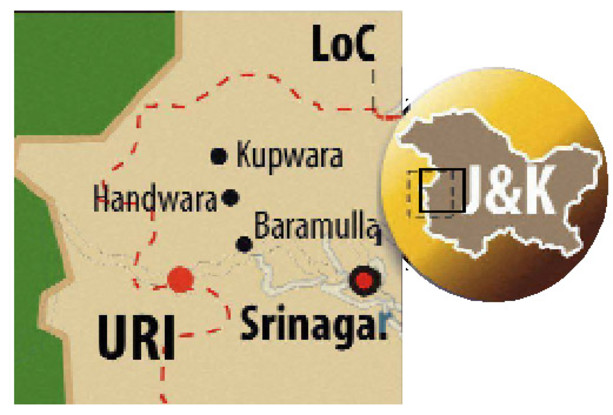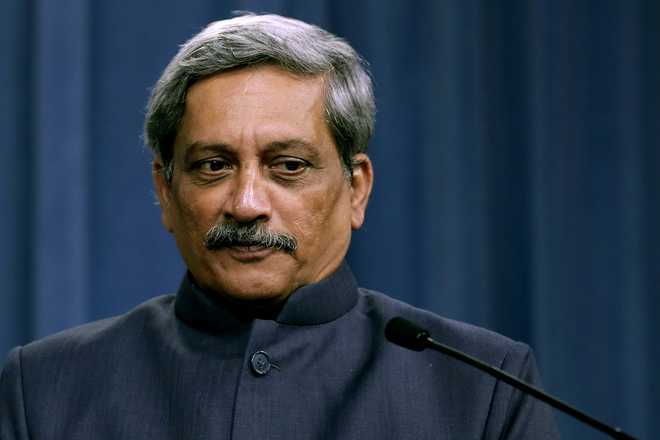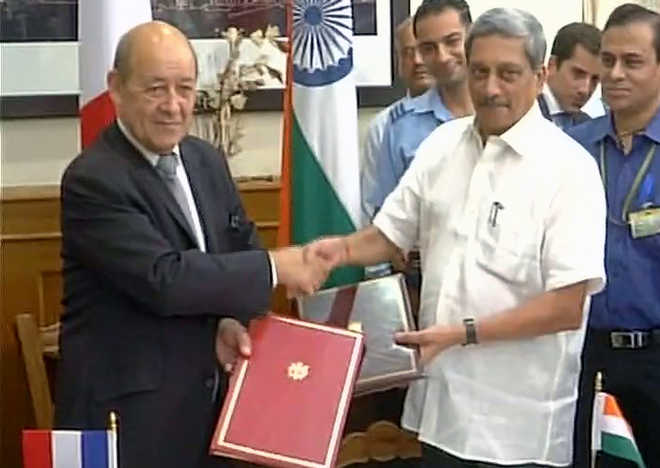
French Defence Minister Yves Le Drian arrived on Friday to finalise the deal. ANI
Ajay Banerjee
Tribune News Service
New Delhi, September 23India on Friday inked the much-awaited contract to buy 36 Rafale fighter jets at a cost of 7.87 billion euros (Rs 58,828 crore) from France.
Defence Minister Manohar Parrikar and his French counterpart Jean-Yves Le Drian signed the deal.
This will end the two-decade gap in procuring new fighter jets for the Indian Air Force (IAF) and will provide a technological edge.
(Follow The Tribune on Facebook; and Twitter @thetribunechd)
The IAF has not procured any new fighter jets for long, the last being the Sukhoi 30-MKI from Russia first ordered in mid-1990s and since then licence-produced in India by Hindustan Aeronautics Limited (HAL).The first of the jets from France is to be delivered in 36 months, that is September 2019, and the entire lot will be delivered over the following 30 months. The French company will make India-specific changes like the next-generation missiles like Meteor and Scalp, which will add capability much beyond India’s immediate adversaries. The plane will be fitted with synthetic aperture radar and radar-jamming.The Meteor is a BVR (Beyond Visual Range) air-to-air missile with a range in excess of 150 km. It will allow the IAF to hit targets inside both Pakistan and Tibet from within its own territory. The Scalp is a long-range air-to-cruise missile with a range of 300 km.Parrikar said, “Rafale is a potent aircraft which will add to the IAF’s capability.”The total cost includes 3.42 billion euros as the cost of the bare planes; 1.8 billion euros for associate supplies for infrastructure and support; 1.7 billion euros for India-specific changes to the plane; 710 million euros for the additional weapons package and 353 million for performance-based logistics support.Under the logistics support, Dassault will ensure that at least 75 per cent of the fleet remains operational or airworthy at any given time.








